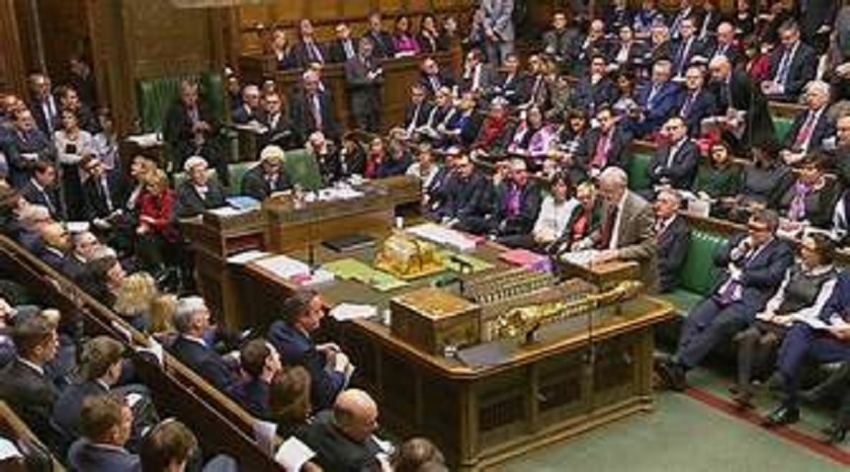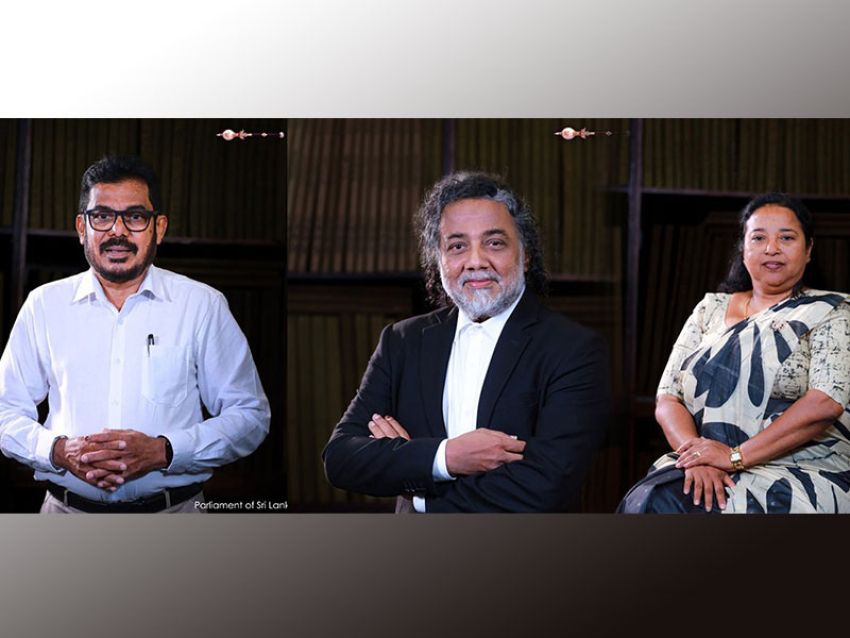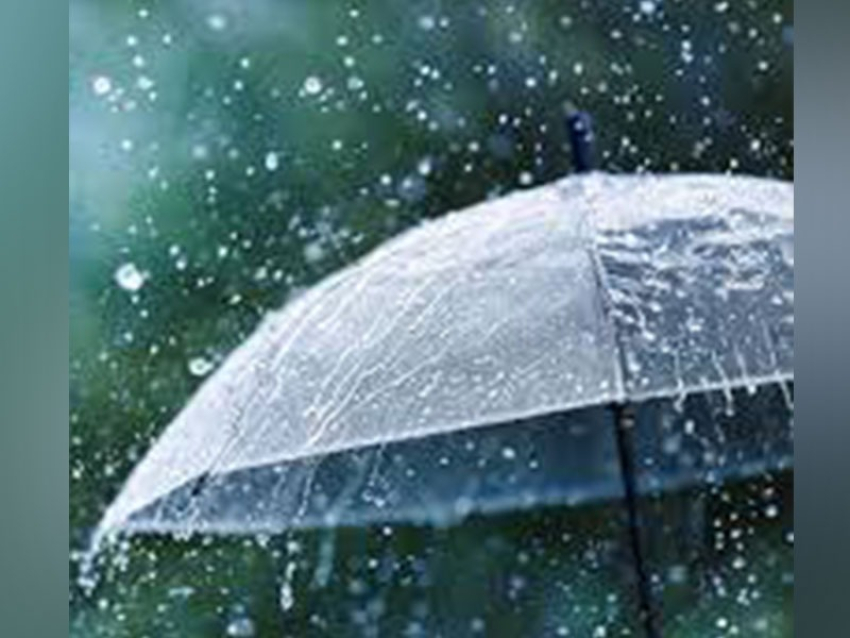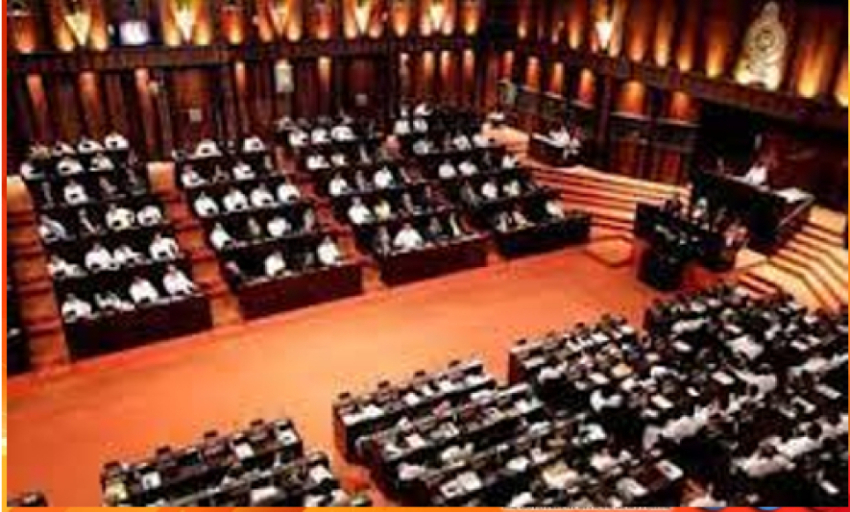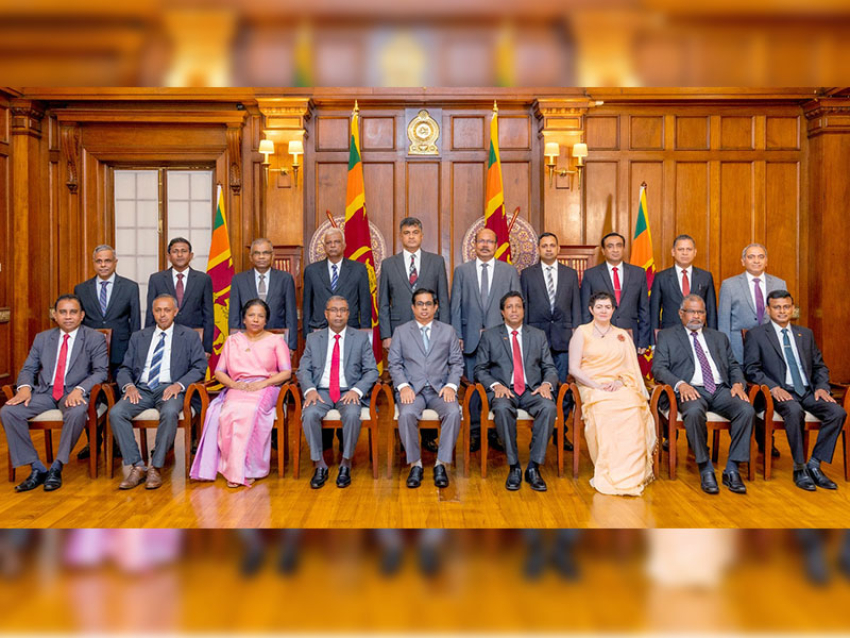Political parties are readying themselves for a general election campaign after MPs voted for a 12 December poll.The legislation approved by MPs on Tuesday will later begin its passage through the House of Lords, where it is not expected to be opposed.Boris Johnson says he is ready to fight a "tough" general election.Labour leader Jeremy Corbyn said the snap poll gave a "once-in-a-generation" opportunity to transform the country.His shadow chancellor, John McDonnell, said the election wouldn't just be about Brexit - telling BBC Radio 4's Today programme: "It will be about austerity [and] about what's happen to our public service."But Mr Johnson hopes the vote will give him a fresh mandate for his deal to leave the EU and break the current deadlock in Parliament.He told Conservative MPs it was time for the country to "come together to get Brexit done", adding: "It'll be a tough election and we are going to do the best we can."
The leaders of the UK's main two political parties will face off for Prime Minister's Questions at midday on Wednesday.What have the other parties said?The Liberal Democrats and the SNP both see the election as a chance to ask voters whether Brexit should happen at all.Lib Dem leader Jo Swinson said the poll was "our best chance to elect a government to stop Brexit".Asked if she would form a coalition government with Labour or the Conservatives, she said: "I can't be clearer - neither Boris Johnson nor Jeremy Corbyn is fit to be prime minister."Mr McDonnell also said there would be "no deals, no coalitions" with other parties if Labour failed to win an overall majority.For the SNP, Scotland's First Minister Nicola Sturgeon said an election was an opportunity for the country to hold another independence referendum."A win for the SNP will be an unequivocal and irresistible demand for Scotland's right to choose our own future," she said.
But the Scottish Conservatives claimed voting for their party would keep Scotland in the UK.Brexit Party leader Nigel Farage welcomed the election, tweeting the deadlock had been "broken" and "Brexit now has a chance to succeed".But co-leader of the Green Party Jonathan Bartley said the poll should be "a climate election" and focus on environmental issues.When the House of Lords approves the election bill today then we will be on course for a 12 December winter election.It is set to be one of the most unpredictable and epic elections of modern times.
Unpredictable, because Brexit totally overshadows it, but also because Brexit has totally reshaped our politics, too.The main parties can no longer rely on the traditional class party residual loyalty. Instead, we have an emerging sort of identity culture politics which has changed the game entirely.And epic in the sense that the sort of promises the two main parties are making are gargantuan huge spending promises.
MPs backed a 12 December general election by 438 votes to just 20 On Tuesday Mr Johnson's team tabled a one-page bill proposing a 12 December election to the Commons which needed the support of only a simple majority of MPs. Labour's amendment to change the date of the proposed election from 12 to 9 December was rejected and MPs voted to back the government's original bill by 438 votes to 20.More than 100 Labour MPs did not take part or abstained in Tuesday's crucial vote, while 11 voted against an election. A total of 127 Labour MPs, including Mr Corbyn, supported the election.
The bill, approved by MPs, paves the way for the first December election since 1923.
Brexit: What happens now?
By Peter Barnes
Senior elections and political analyst,
Prime Minister Boris Johnson had previously said the UK would leave by 31 October "do or die". He has agreed a deal with the EU but the bill implementing it has been put on hold. It will now not progress before the general election.
MPs failed to back a motion on 28 October to call an early election - the third time they had done so.
Under the Fixed-term Parliaments Act, two thirds of all MPs - 434 in total - are needed to get an early election using that procedure.
What is the Withdrawal Agreement Bill?
What is Boris Johnson's new deal with the EU?
What are the PM's election options?
However, on 29 October they backed a short bill to change the Fixed-term Parliaments Act. They rejected a Labour amendment to change the date of the election from 12 December to 9 December.
Only a simple majority was required but the bill still has to go through the House of Lords.
Assuming that happens, without further attempts to change the date, Parliament will be dissolved on 6 November with the election taking place on 12 December.
What happens next on Brexit would depend on the outcome of that election.
Where do the parties stand on Brexit?
Implement the deal
One option is to implement the Brexit deal that Boris Johnson has negotiated with the EU.
A new version of the Withdrawal Agreement Bill would have to be introduced in the new Parliament - and go back to the beginning of its passage through Parliament.
The aim would be to get the bill completed in time for Brexit on 31 January. This is the Conservatives' plan.
Another referendum
There could also be another referendum although it would certainly require a further Brexit delay.
The referendum could have the same legal status as the one in 2016. It would be advisory, and the government would have to decide how to respond once the result was known.
An alternative would be to hold a so-called "confirmatory" referendum. That would be between a particular Brexit deal and remain - or possibly with no deal as an option. The result of this kind of referendum would be legally binding.
Either way, the new referendum would require legislation to be held. There would also have to be time for the Electoral Commission to consider the question wording - especially if it's a referendum with more than two options.
Experts at the Constitution Unit at University College London say it would take a minimum of 22 weeks.
Labour, the SNP, The Independent Group for Change, Plaid Cymru and the Green Party all support having another referendum.
No-deal Brexit
The default position will be that if no deal is passed by Parliament, the UK will leave the EU without one on 31 January 2020.
Leaving without a deal (or withdrawal agreement) means the UK would immediately exit the customs union and single market - arrangements designed to make trade easier.
Many politicians and businesses say this would damage the economy. Others say the risks are exaggerated.
The Brexit Party wants the UK to leave the EU without a deal, in what it calls a "clean-break Brexit".
There is also the legal option of cancelling Brexit altogether by revoking Article 50.But clearly, this is not something the current government is contemplating - so it's only really possible to imagine this outcome after a change of government.
The Liberal Democrats have said that if they won a majority in the House of Commons they would revoke Article 50 and cancel Brexit. If they didn't get a majority, they would support another referendum.
UK general election: A really simple guide
The UK's main parties are gearing up for a general election on 12 December.
These national votes, to choose a government to run the country, are supposed to be held every five years. But this would be the third since 2015.
What is an election for?
A total of 650 people will be chosen as members of Parliament (MPs), to decide laws and policies.
MPs are elected to the House of Commons, one of two chambers of Parliament in London, where the government is based.
What do voters care about more, the NHS or Brexit?
Detailed proposals for everything from the economy to defence and policing are set out before any general election in manifestoes. These come from the UK's political parties - groups of people with similar political beliefs who come together to try to win power.
The issues UK voters care most about have changed a lot, according to polls.
The National Health Service (NHS) and immigration were the things that most concerned voters in 2015. The European Union (EU) was of far less interest.
Now, however, Brexit - the UK's departure from the EU - is by far the biggest issue.
Why have an election now?
Nearly three-and-a-half years after the UK voted for Brexit in the 2016 referendum, it has not happened.
Politicians are divided: some want the UK to leave the EU as soon as possible, some would prefer another referendum, and others to cancel Brexit altogether.
Prime Minister Boris Johnson doesn't have enough MPs to easily pass new laws. He hopes an early election will increase the number of Conservative MPs, making his Brexit plans easier to achieve.
The next general election was due to be in 2022, but Mr Johnson has been pressing for an early election for some weeks. Now opposition parties have moved to support an early election too.
Sir John Curtice: Do voters really want another general election?
Winter election: What difference does it make?
How to register to vote for a general election and other questions
How does voting work?In a general election, the UK's 46 million voters are invited to choose an MP for their area - one of 650 constituencies.Anyone aged 18 or over can vote, as long as they are registered and a British citizen or qualifying citizen of the Commonwealth or Republic of Ireland.Older people are more likely than younger ones to vote. At the 2017 general election, 59% of 20- to 24-year-olds voted, compared with 77% of 60- to 69-year-olds.Voting takes place at local polling stations, set up in places such as churches and school halls. Voters put a cross on the ballot paper beside the name of their chosen candidate and drop it into a sealed ballot box.
How are the winners chosen?The candidate with the most votes in each constituency is elected to the House of Commons.To win, they simply need more votes than anyone they are standing against. They could receive fewer than half of the votes in their constituency.Most MPs represent a political party but some stand for election as independent candidates.Any party with more than half the MPs (326) in the Commons usually forms the government. The UK's voting system means that parties can take power with well below 50% of the national vote.If no party has a majority of MPs, the one with the most can form a coalition - or partnership - with one or more other parties to gain control.The prime minister is not directly voted for by the public. He or she is chosen by the winning party's MPs and appointed by the Queen, who is duty bound to follow their advice.
General election 2017 in numbers326Seats needed for a majority318Conservative Party seats won262Labour Party seats won35Scottish National Party seats won68.7%Voter turnout
What happened at the last election, in 2017?Every election since 1922 has been won by either the Conservative or Labour parties.They were again the two biggest parties in the 2017 vote but neither had enough MPs to form a majority government. The Conservatives were the biggest and they partnered with the Democratic Unionist Party (DUP) in order to win votes in the Commons.Since the election, the Conservatives and Labour have both lost MPs, while the Liberal Democrats have made gains.The House of Lords is Parliament's second chamber. Its members are not elected but are appointed by the Queen, on the prime minister's advice.
Who can stand for Parliament?Most people over 18 on polling day can stand as a candidate - as long as they are a British citizen or a qualifying Commonwealth or Republic of Ireland citizen resident in the UK.They must also pay a £500 deposit, which will be lost if they do not get at least 5% of the votes in their constituency.Candidates must meet certain conditions - prisoners, civil servants, judges and members of the police and armed forces cannot stand.
When do we find out the result?
On general election day, voting takes place between 07:00 and 22:00. The results are declared through the night and the following day.When the overall result is known, the leader of the winning party, if there is one, visits Buckingham Palace to ask the Queen for permission to form a new government.Once they have that, which is a formality, they return to 10 Downing Street, the traditional home of the prime minister.Often they will stand outside to deliver a speech about their party's plans for the coming years.
Can the Queen vote, and other election questions
3 hours ago
Share this with Facebook Share this with Messenger Share this with Twitter Share this with Email Share
Media captionDon't get left outside on polling day - here's how to register to vote
Who is eligible to vote?
To vote in a general election you must be registered to vote and 18 or above on polling day.
You must be a British citizen, a citizen of the Republic of Ireland, or a Commonwealth citizen who meets certain eligibility criteria. You must live in the UK, or be a British citizen abroad who has been registered to vote in the last 15 years.
Some people are excluded from voting, including members of the House of Lords, convicted prisoners, anybody found guilty of electoral fraud within the past five years, and people with any "legal incapacity" that impairs their judgement.
The electorate is slightly different in a general election than in the Brexit referendum, which included those registered to vote in Gibraltar.
How do I register to vote?
It takes about five minutes to register on the government's website, or you can register by post. You will need your National Insurance number, date of birth and address.
Students can vote using their university or home address. It is legal to be registered in two areas, but a criminal offence to vote in both.
People who are away for work or a holiday on election day can vote by post or proxy, which means nominating someone to cast a ballot for you. Your proxy must be a registered voter over the age of 18.
How to register for a general election
Can the Queen vote in a general election?
The Queen does not vote. She "has to remain strictly neutral with respect to political matters" and is "unable to vote or stand for election", according to Buckingham Palace.
Image copyrightGETTY IMAGES
Image caption
Each incoming prime minister is formally asked by the Queen to form a government
However, the monarch is legally allowed to cast a ballot in general elections.
The Queen does not vote "by convention... rather than because of a legal impediment", the Electoral Commission has said.
Who runs the country during an election period?
Parliament is dissolved 25 working days before a general election. This means every seat in the House of Commons becomes vacant and MPs stop representing their constituencies. They even stop being able to use MP in their name.
However, government ministers remain in office and in charge of their departments until a new government is formed.
By convention, after Parliament is dissolved, a period called "purdah" begins, when ministers' activities and the use of official resources are restricted.
Why is a pencil used for voting?
The Electoral Commission says that pencils are usually used in polling booths for practical reasons. The ink from a pen could leave a mark when a ballot paper is folded, or run or spill.
Image copyrightGETTY IMAGES
Image caption
Dogs are sometimes allowed in polling stations, if they're on a lead
But there's nothing in law that says you have to use a pencil. If voters want to, they can take their own pen.
Do I need my polling card to vote?
After registering to vote, your council will send you a polling card. That includes details of your polling station and when you can vote.
You don't need to take this polling card with you to vote. Tell the polling clerks your name and address, and they will issue your ballot paper.
In England, Scotland and Wales, you don't need to take photo ID either, despite recent government proposals.
But that's not the case in Northern Ireland, where identification is needed.
Is it illegal to take photos in a voting booth?
There are no laws against taking photos in a polling booth but it is strongly discouraged. That's because laws to make sure votes stay secret are very complex.
For example, it's illegal to reveal how somebody else has voted - and taking of photos could break that rule.
Who will be the first to declare results?
For 25 years, Sunderland South - latterly Houghton and Sunderland South - was the country's first to declare their results.
But in the 2017 general election, Newcastle upon Tyne Central beat them by seven minutes - delivering their results at 23:00, an hour after polling stations closed.
Sunderland City Council says being organised is the key to efficient counts. It uses local sixth-formers to pass ballot boxes down the line and council staff and bank tellers to count the votes.
What happens to voting slips?
Once the votes have been counted and the winners declared, all the ballot papers are put in sealed bags and stored securely for one year.
They have to be kept separately - sorted by counted papers, postal votes, rejected papers or unused ones.
That's in case the result of the election is challenged legally, for example if someone thinks a candidate broke the law, or votes weren't counted correctly.
Afterwards, the council is responsible for their disposal. Some shred the papers and recycle them, but they don't have to.
Who organises an election?
As soon as Parliament is dissolved, there is a lot to do.
Before election day, jobs include delivering nomination papers, making sure postal and proxy votes are sent out and new voters are registered.
The people in charge of this are called returning officers. There's one for each constituency.
They're also responsible for finding presiding officers to oversee each polling station, poll clerks to staff the stations and counting assistants to finalise the result.

